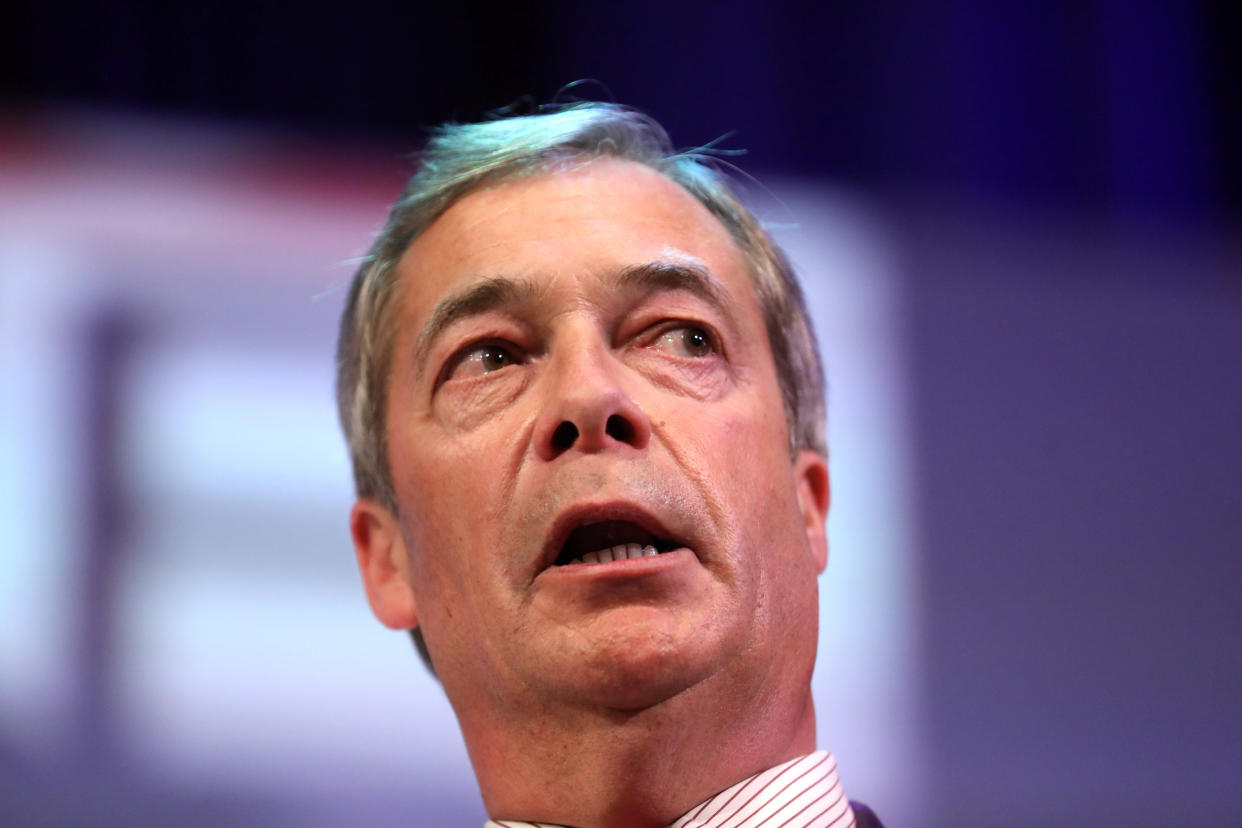Nigel Farage says it's better to risk a second referendum than agree to Theresa May's Brexit vote

It is better to run the risk of a second referendum than agree to Theresa May’s Brexit deal, Nigel Farage has said.
The former Ukip leader said so much is at stake that Mrs May’s withdrawal plans should be opposed, even if that means another vote on departure from the EU.
Speaking to ITV’s Robert Peston, he said: “This is about our independence, it’s about our ability to become competitive.
“It’s about our ability to recognise we are living in a global economy in which there is a massive transfer of power from the west to the east and how are we best fixed for the next two decades to deal with it.
“Personally my view at the moment is better to vote down this dreadful deal and take the risk of a second referendum.”
.@Nigel_Farage says that due to what is at stake, its better to vote down May’s deal and run the risk of a second referendum. #Peston pic.twitter.com/LfmE9OtfNf
— Peston (@itvpeston) January 23, 2019
Mr Farage’s comments come as forecasting group the Economic Intelligence Unit (EIU) said the likelihood of a second referendum has “risen sharply”.
EIU put the probability of another poll at 50% – up from 30% in a similar analysis less than a fortnight ago.
COUNTDOWN TO BREXIT – ANALYSIS FROM YAHOO UK
Where do Theresa May’s ministers stand on Brexit?
Post-Brexit trip to Europe? Try these non-EU alternatives
Bank of England governor ‘confident’ about UK banks’ Brexit readiness
Don’t be fooled – the biggest battle over Brexit starts now
Hard Brexit ‘could cripple UK science’ warn Nobel Prize winners
It said it expects the Government to delay Britain’s exit and predicted that Mrs May’s “plan B” for Brexit will not be enough to secure parliamentary approval.
It previously gave the plan a 40% chance of succeeding, but that has now dropped to 20%.
Danielle Haralambous, UK analyst at the EIU, said Theresa May’s “plan B” for her Brexit deal was “unlikely to do much to revive it”.
“As before, a lot depends on how much the EU is willing to bend on the Irish backstop arrangement, and as before, the EU has made clear that it will not,” she said.
“With the deal unlikely to be revived, the Brexit options have narrowed, and in our view the probability of a second referendum being held to break the political deadlock has risen sharply.”
She said: “We still think that when it comes down it, Mrs May and her government are not prepared to run down the Article 50 clock and leave the EU without a withdrawal agreement and transition arrangements in place.”
“We therefore expect the Government to request an extension that avoids a cliff-edge situation, and in our view a second referendum is the most likely next step.
“The outcome of such a referendum will depend on how the options are phrased and how the vote is structured, and this will be the subject of a lengthy parliamentary debate.
“One downside from this outcome is that delaying Brexit to hold a referendum that includes the possibility of a vote for ‘no deal’ extends the period of economic uncertainty faced by businesses, weighing on activity in the near term.”
The EIU is revising its forecast for economic growth in the UK in 2019 to 1.1% from 1.4% previously, she said.

 Yahoo News
Yahoo News 


